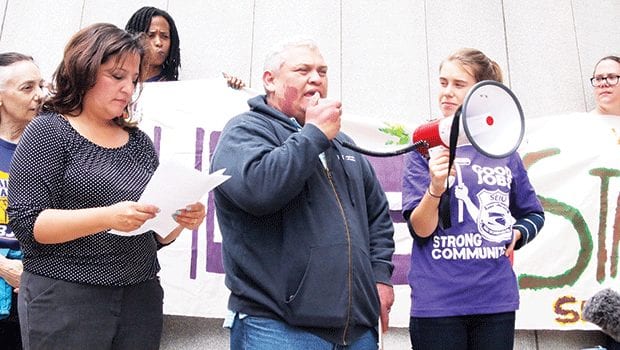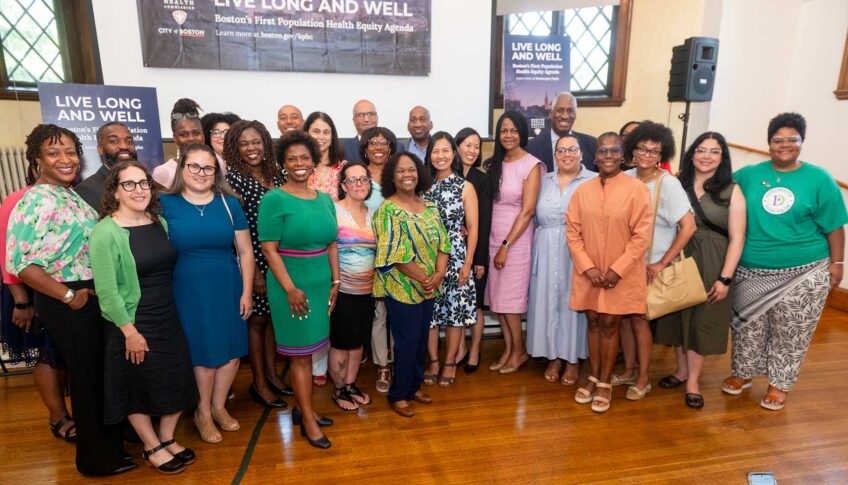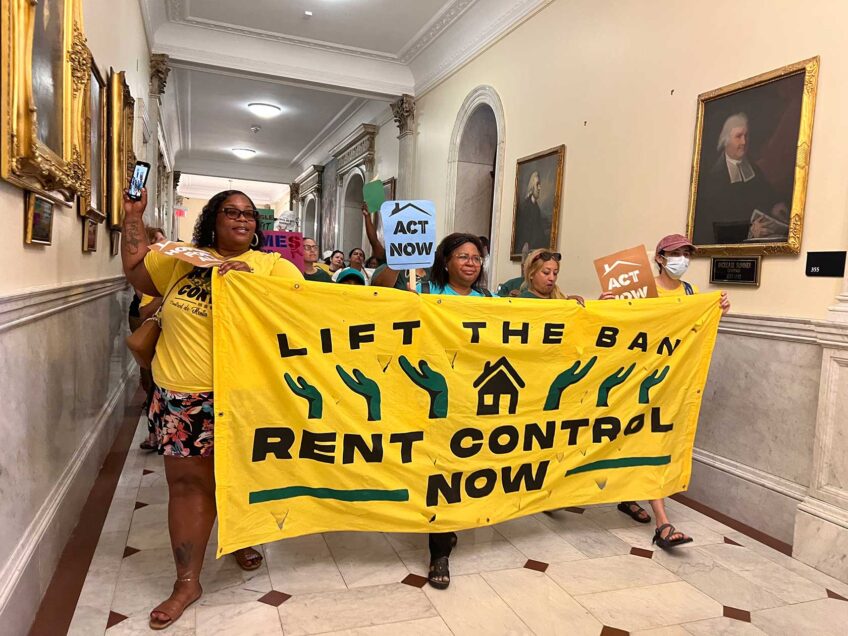
Activists say the case of Francisco Rodriguez Guardado, a father, small business owner and community member, lays bare how misaligned federal immigration priorities have become under Donald Trump. Rodriguez Guardado, a native of El Salvador, has lived and legally worked in the Greater Boston area for a decade, and holds no criminal record. His daughters, 10-year-old Mellanie and 5-year-old Jessica, are American citizens and he has a baby on the way. He is at risk of being deported next month.
Rodriguez Guardado has been working as an MIT janitor and owns a carpet cleaning business. He arrived in the U.S. in the mid-2000s seeking asylum, and although federal Immigration and Customs Enforcement agents eventually denied that request, they have allowed him to remain in the country. In recent years, that permission was granted via a stay of removal. This year, ICE declined to renew the stay. He will meet with agents on July 13. His lawyer said it is not clear if he will return from the meeting or be held by ICE. Should ICE agents be persuaded to hold off on removal, next year his mother, who is a legal permanent resident, will be able to petition for his citizenry.
Rising in support
Community members turned out last week to rally in front of the ICE detention center downtown on Guardado’s behalf. Among them were members of Jobs Not Jails, Centro Presente, SEIU and the MIT community. Organizers said that by this point two petitions protesting Rodriguez Guardado’s removal had collected 5,000 signatures and that they were aware of 30 other letters in support from elected officials and community members. Activists said Rodriguez Guardado is an engaged member of his community, serving as a member of the parent committee for his children’s school, the community organization Chelsea Collaborative, the Tabernáculo Bíblico Seguidores de Jésus church and the 32BJ SEIU at MIT.
Should his residency not be renewed next month, Rodriguez Guardado told the Banner his top concerns are for his family’s safety, and that he may be murdered. Rodriguez Guardado emigrated from El Salvador seeking asylum after a gang member killed one of his employees. Since then, he made enemies by helping U.S. border control, when he served as a witness in a case against organized crime members who were seeking to enter the country, he said.
“They may kill me,” he told the Banner. “I worry to show my face a lot for that reason.”
The case demonstrates the uncertainty that nonpermanent residents and their families face at the hands of ICE agents. When Rodriguez Guardado met with ICE this June, they originally told him to report back in six months. Later that day, they called back and truncated that time to one month, Matt Cameron, his lawyer, said.
Speakers further charged that Rodriguez Guardado’s situation reveals a misuse of resources. Felix D. Arroyo and others said that ICE appears to be depleting its ability to pursue undocumented immigrants who actually represent public safety threats by instead spending money and officers on targeting law-abiding individuals who are assets to their communities.
Cameron said that ICE only can afford to deport one in 100 people. Give that reality, “Why would you chose to deport someone like Francisco?” he asked. He said there is too little public awareness of ICE’s doings, but that rallies like this one help draw attention to their actions.






